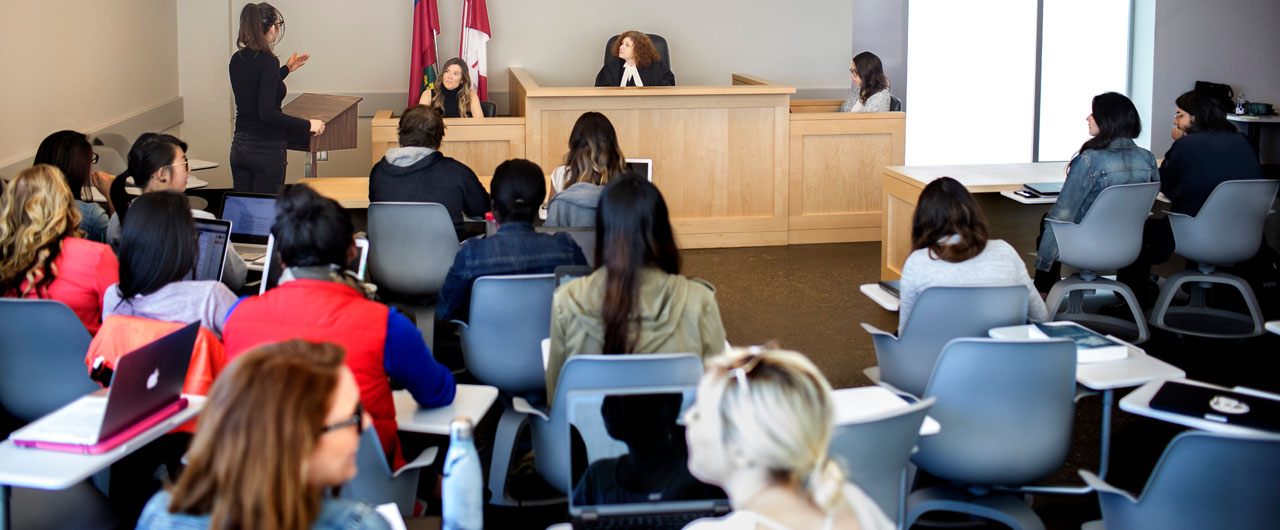This Seneca program has been validated by the Credential Validation Service as an Ontario College Credential as required by the Ministry of Colleges and Universities.
Paralegal (Accelerated)
Program Learning Outcomes
As a graduate, you will be prepared to reliably demonstrate the ability to:
- Articulate and adhere to the permitted scope of paralegal practice and the Paralegal Rules of Conduct and complete all work in compliance with the ethical and professional responsibilities of a Paralegal.
- Manage a paralegal practice and operate a small business, within the Paralegal Rules of Conduct relevant to these matters by effectively utilizing administrative and business management skills.
- Describe the fundamental elements of the Canadian government and legal system, including the Constitution Act, the Charter of Rights and Freedoms, the organization of the Canadian court system, and the basic principles of property, business and consumer law.
- Articulate and adhere to the basic principles of tort and contract law.
- Conduct legal research and write legal memoranda and reports.
- Adhere to the civil litigation process, within the permitted scope of paralegal practice, and apply procedural and evidentiary rules related to proceedings in the Small Claims Court.
- Describe the principles of criminal law, and adhere to the rules relating to proceedings under the Criminal Code before a summary conviction court.
- Describe the principles of the law of provincial offences, and adhere to the rules relating to proceedings under the Provincial Offences Act before the Ontario Court of Justice.
- Make effective client representation before courts and administrative tribunals within the permitted scope of paralegal practice.
- Compare and contrast various alternate dispute resolution mechanisms, select an appropriate mechanism as required, and explain to the client the potential consequences of the dispute resolution mechanism.
- Adhere to the basic principles of administrative law, and of general practice and procedure before administrative tribunals.
- Articulate and adhere to the principles of employment law, and the practice and procedure related to the administrative tribunals that deal with employment matters.
- Articulate and adhere to residential landlord and tenant law, and the practice and procedure before the Landlord and Tenant Board.
- Draft all necessary documents in a clear, concise and accurate manner.
- Apply basic accounting principles, terminology, and operations to all paralegal obligations related to trust accounts, and the Law Society’s requirements for book and record keeping.
- Select and use the appropriate computer software necessary to produce correspondence, spreadsheets, memoranda and legal documents.
- Prepare an employment resume in accordance with professional legal standards.
